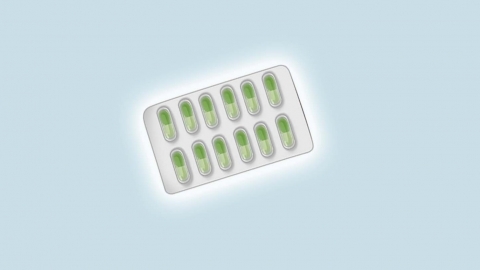What medication can relieve pain caused by gallbladder polyps?
Commonly used medications to relieve pain from gallbladder polyps include nonsteroidal anti-inflammatory drugs (NSAIDs), antispasmodics, choleretics, antibiotics, and traditional Chinese patent medicines. The choice of medication should be based on the underlying cause of pain (such as inflammation or spasm) and must follow medical advice; self-medication is not recommended. If severe pain persists, or if jaundice or fever occurs, immediate consultation with a hepatobiliary surgeon is necessary.

1. Nonsteroidal anti-inflammatory drugs (NSAIDs): Such as ibuprofen sustained-release capsules and diclofenac sodium enteric-coated tablets. These reduce pain by inhibiting inflammatory responses and are suitable for mild dull pain caused by minor inflammation associated with gallbladder polyps. Common formulations include capsules and tablets, which can alleviate mild to moderate pain.
2. Antispasmodics: Such as belladonna tablets and racemic anisodamine tablets. These relax smooth muscles of the gallbladder and relieve paroxysmal pain due to gallbladder spasms. Available in tablet and injectable forms, the injectable form acts more rapidly and is preferred in acute pain situations.
3. Choleretics: Such as ursodeoxycholic acid capsules and anti-inflammatory and cholagogue tablets. These promote bile secretion and reduce bile stasis-induced irritation of the gallbladder, thereby indirectly relieving distension-related pain caused by bile accumulation. Formulations include capsules and tablets, and they should be taken according to prescribed treatment courses.
4. Antibiotics: Such as cefuroxime axetil tablets and levofloxacin capsules. These are used only when bacterial infection accompanies gallbladder polyps, helping to control infection and thus reduce inflammation-related pain. Available in tablet and capsule forms, antibiotics should be used strictly under medical guidance after confirmation of infection.
5. Traditional Chinese patent medicines: Such as Jin Dan tablets and Dan Ning tablets. These have effects of clearing heat, removing dampness, soothing the liver, and promoting bile flow, helping to relieve symptoms such as hypochondriac distension, bitterness in the mouth, and chronic pain associated with gallbladder polyps. Most are available in tablet or capsule form and are suitable for adjunctive relief of chronic discomfort.
Daily care involves maintaining regular eating habits, avoiding overeating and greasy foods to reduce gallbladder burden, staying emotionally balanced, and undergoing regular gallbladder ultrasound examinations to monitor polyp changes. Seek timely medical attention to adjust treatment plans if pain worsens or polyps grow in size.




